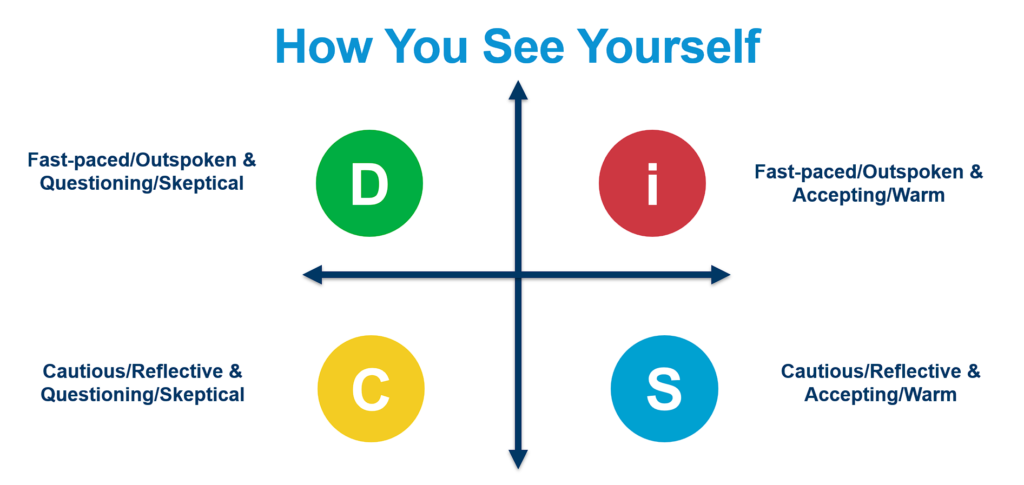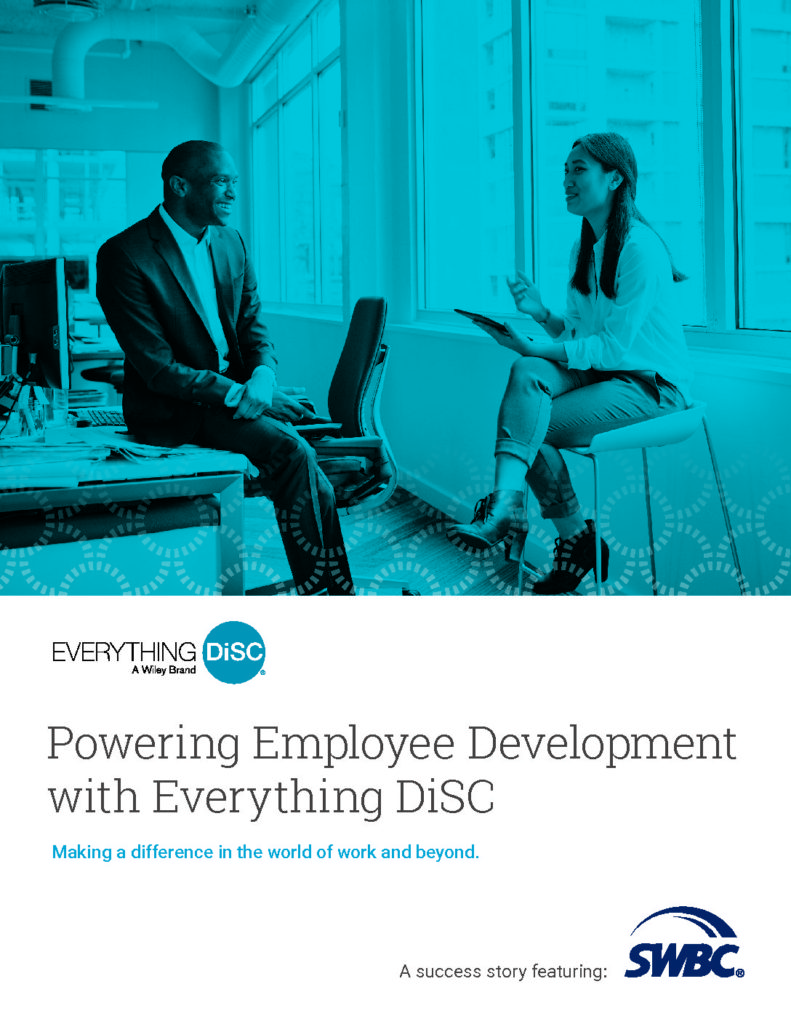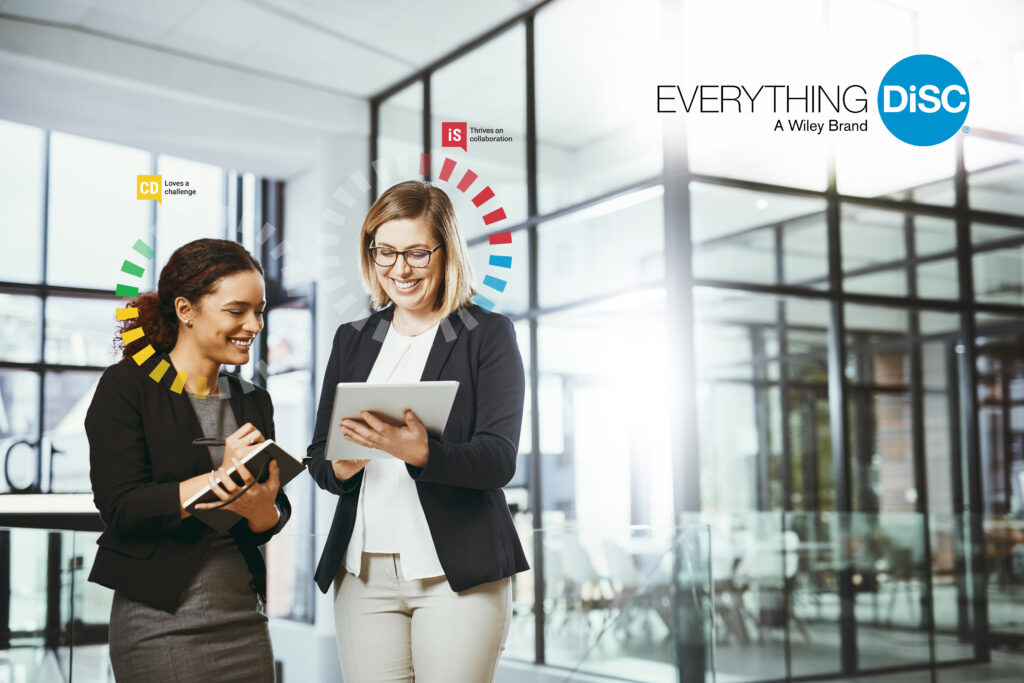Conflict is an inevitable part of life, both in personal and professional relationships. However, the outcome depending on how we handle conflict, is a resolution or an escalation. To effectively manage conflicts, individuals and organizations can benefit from the Everything DiSC Personality Assessments.
The Everything DiSC Assessment is a globally recognized tool in delivering personalized soft skills training. It has an immediate and lasting impact on individual and organizational performance and culture.
Reframe conflict as an opportunity using the DiSC Productive Conflict Assessment
One of the most common approaches to dealing with conflict is to avoid it. This approach can include avoiding difficult conversations, staying silent when we disagree, or even walking away from the situation. However, evasion often leads to unresolved issues and communication breakdowns. With DiSC, individuals and organizations can learn effective conflict management strategies and communication skills, leading to better relationships and increased success.
To effectively manage conflict, it’s crucial to reframe it as an opportunity to engage rather than evade. This means approaching conflict with an open mind and a willingness to work collaboratively to find a solution that benefits everyone involved. The Everything DiSC Personality Assessment provides effective conflict management strategies and communication skills that can help individuals and organizations shift their mindset from avoidance to engagement.

Reframing conflict as an opportunity to engage has the potential to yield positive outcomes and foster stronger relationships. An essential aspect of this approach is recognizing that everyone involved in the conflict has a unique perspective shaped by their experiences and backgrounds. Acknowledging and respecting these differences can help individuals find common ground and work towards a shared goal.
The Everything DiSC Personality Test helps understand both individual and team behavioral styles
The DiSC Personality Test and DiSC Training offer a comprehensive understanding of individual and group behavioral styles, which can lead to effective conflict management. By becoming DiSC certified, individuals and organizations can learn to recognize and manage behavioral differences and communication styles to foster healthier and more productive relationships.
Effective communication is also essential when reframing conflict. This means being willing to listen actively to others and to express our own thoughts and feelings in a way that is respectful and non-judgmental. By communicating clearly and honestly, we can avoid misunderstandings and work towards a solution that meets everyone’s needs.
Another key element of engaging with conflict is to focus on the underlying issues rather than getting caught up in the surface-level disagreements. For example, if two coworkers are arguing about a project, it might be helpful to step back and ask why each person feels so strongly about the project. By understanding the deeper motivations and concerns, we can work towards a solution that addresses the root of the problem rather than just the symptoms.

How Everything DiSC Facilitation Training approaches conflict
In addition to these strategies, there are several specific steps we can take to reframe conflict from evade to engage:
Acknowledge the conflict: The first step in addressing any conflict is to acknowledge that it exists. This means being willing to confront difficult conversations and to be honest about our own feelings and perspectives.
Listen actively: When engaging with conflict, it is essential to listen actively to others. This means focusing on what the other person is saying and seeking to understand their perspective rather than just waiting for our turn to speak.
Stay calm: Conflict can be emotional and intense, but it is essential to stay calm and composed in order to find a productive solution. This might involve taking a few deep breaths or stepping away from the situation for a few moments to gather our thoughts.
Reframe the conversation: Rather than getting stuck in a back-and-forth argument, try reframing the conversation by asking questions or seeking common ground. For example, “I understand that we disagree on this point, but what are some areas where we can work together to find a solution?”
Collaborate on a solution: Once the underlying issues have been identified and discussed, work together to find a solution that meets everyone’s needs. This might involve compromise or creative problem-solving, but the end goal should be a resolution that everyone can agree on.
By reframing conflict from evade to engage, we can create more positive outcomes and build stronger relationships. Rather than avoiding difficult conversations or letting disagreements fester, we can approach conflict with an open mind and a willingness to work towards a shared solution. With effective communication, active listening, and a focus on collaboration, we can transform conflict from a negative experience into an opportunity for growth and progress.
DiSC Research: the adverse effects of unacknowledged conflict
The presence of unacknowledged conflict can create a significant impediment to organizational success. When individuals opt to steer clear of disagreements that can drive improvement in products and processes, progress can come to a halt, leading to a decline in performance. Given the fast-paced nature of modern work environments, stalling is not an option for organizations. This barrier not only hampers achievement of goals and the bottom line but also affects the culture of the organization, which, in turn, has an impact on employee morale, engagement, and retention. It is evident that conflict debt can result in severe consequences. Therefore, the question arises: How can we empower individuals and organizations with the necessary skills to effectively engage in conflict rather than evade it? What strategies can we employ to combat our natural tendency to avoid conflict at all costs?
In addressing this question, it is essential to recognize that human behavior is multifaceted, and conflict affects each individual in a distinct way. Some people view conflict as a personal attack, causing them lasting emotional harm, while others perceive it as an attack on their competence, triggering defensive behavior. To transition from avoidance to engagement in conflict resolution, a personalized approach is necessary.
Identify different work styles with Everything DiSC
One way to initiate this shift within an organization is to recognize the differences in work styles that create unnecessary distance between individuals, such as misunderstandings resulting from direct communication or skepticism, that neccesates steps to handle conflict. Everything DiSC’s new program, Productive Conflict, offers organizations an effective way to achieve this goal. It’s worth noting that Productive Conflict is not a conflict resolution tool, but rather a program that provides personalized insights that promote self-awareness and transform destructive behaviors into productive ones, resulting in improved workplace relationships and outcomes. Through the use of the DiSC® model, participants can gain a better understanding of their behavioral tendencies during conflicts.
